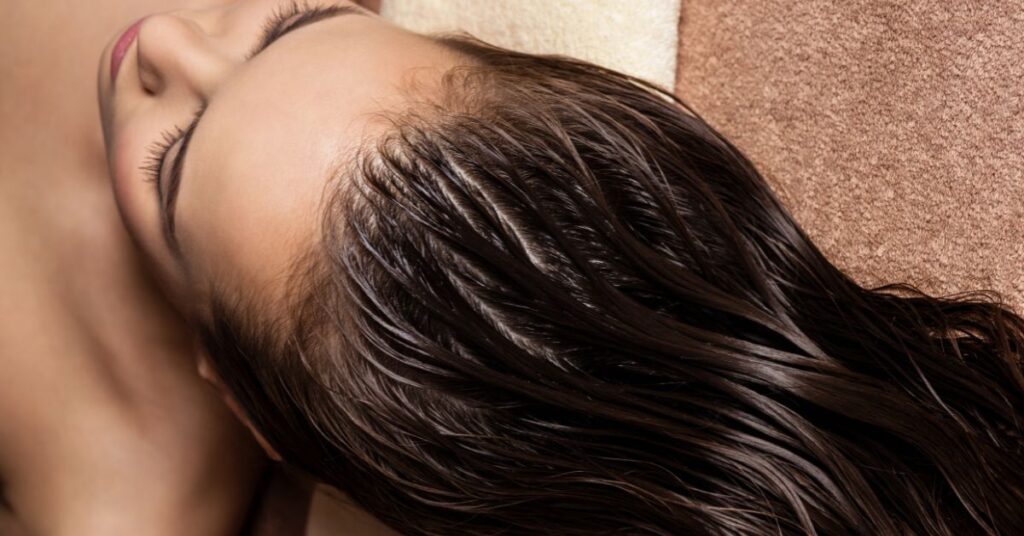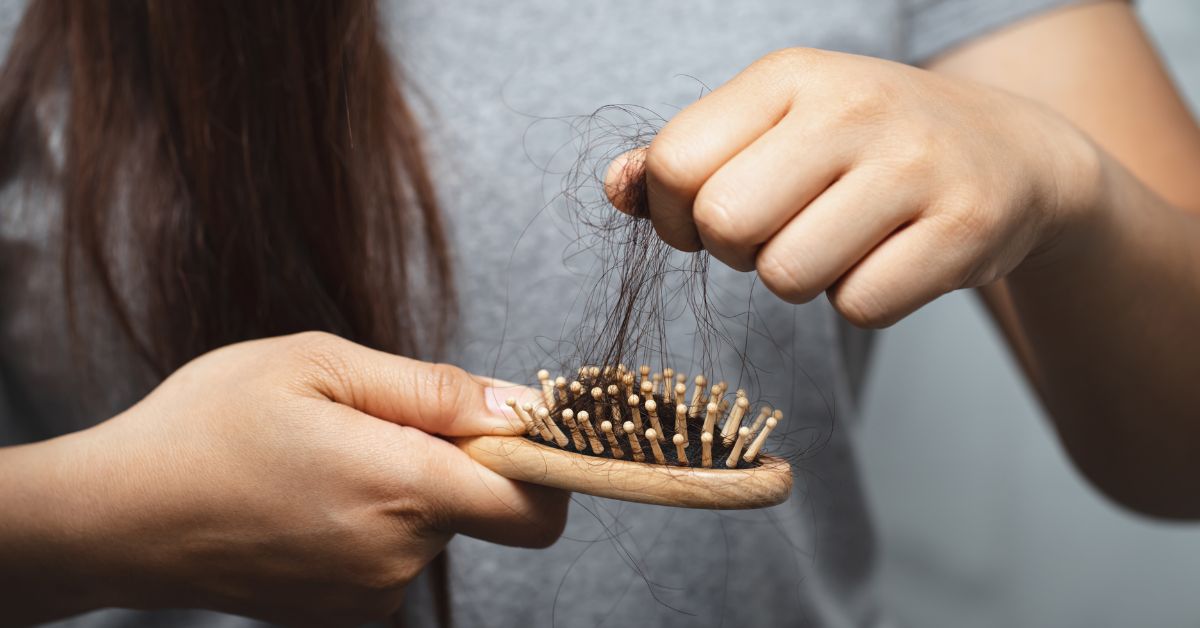This article includes affiliate links, which means I might receive a commission if you decide to buy something through them. It won’t cost you anything, but your support helps me keep creating helpful content like this. Thank you!
If you’re struggling with oily hair, you’re not alone. Excess oil can make your hair look greasy and weighed down, leading to more frequent washes and frustration. Fortunately, there are several natural remedies that can help you manage and reduce oiliness without harsh chemicals. Let’s dive into some effective solutions that will help you keep your hair looking fresh and clean!

Understanding Oily Hair
Oily hair occurs when your scalp produces excess sebum, the natural oil that keeps your hair moisturized. A certain amount of oil is essential for maintaining healthy hair, but excess oil can result in greasy hair and an unappealing shine. Factors like hormonal changes, diet, and improper hair care can contribute to this issue. Fortunately, natural remedies can help regulate oil production and maintain healthy-looking hair.
1. Apple Cider Vinegar Rinse: Balance and Clarify
Apple cider vinegar (ACV) is a fantastic natural remedy for oily hair. Its acidic properties help balance the scalp’s pH and reduce excess oil. ACV also has antimicrobial properties that can help keep the scalp clean.
How to Use It:
Dilute 2-3 tablespoons of ACV in a cup of water. After you’ve shampooed, apply this mixture as a final rinse. Allow it to remain for several minutes before rinsing off with water.
For a high-quality choice, consider Bragg Organic Raw Apple Cider Vinegar. It’s pure and effective for scalp care.
2. Lemon Juice: Refresh and De-Grease
Lemon juice is a natural astringent that helps reduce excess oil and cleanse the scalp. Its rich vitamin C content aids in regulating oil production and enhancing scalp health.
How to Use It:
Blend the juice from a lemon with a cup of water. Apply the mixture to your scalp and leave it on for 5-10 minutes before rinsing it out.
For convenience, you might consider Nature’s Way Lemon Balm Extract, which can be used in a DIY mask or treatment.
3. Baking Soda: Absorb Oil and Exfoliate
Baking soda is an effective natural absorbent that helps to absorb excess oil from your hair and scalp. It also serves as a mild exfoliant, helping to slough off dead skin cells.
How to Use It:
Sprinkle a small amount of baking soda onto your dry scalp and massage it in. Leave it on for a few minutes before shaking out the excess and brushing your hair.
For a reliable and versatile option, try Arm & Hammer Baking Soda. It’s perfect for both baking and hair care.
4. Aloe Vera: Hydrate and Control Oil
Aloe vera is widely known for its soothing and hydrating effects on the skin. It can help control oil production while keeping the scalp hydrated and healthy.
How to Use It:
Apply fresh aloe vera gel directly to your scalp and gently massage it in. Allow it to sit for around 20 minutes before rinsing your hair with a mild shampoo.
Seven Minerals Organic Aloe Vera Gel is a great choice for a pure and natural treatment.
5. Green Tea: Purify and Refresh
Green tea contains antioxidants that help regulate oil production and soothe the scalp. Its natural astringent properties can also help in reducing greasiness.
How to Use It:
Steep a cup of green tea and allow it to cool. Use it as a rinse after shampooing, letting it sit for a few minutes before rinsing with water.
For a high-quality choice, try Matcha Maiden Organic Green Tea. It’s high-quality and perfect for homemade hair treatments.
6. Witch Hazel: Soothe and Regulate Oil Production
Witch hazel is a natural astringent that helps to remove excess oil from the scalp without stripping it of its natural moisture. It also has anti-inflammatory properties, which can soothe irritation and calm the scalp.
How to Use It:
Dilute a few tablespoons of witch hazel with water and apply it to your scalp using a cotton ball or spray bottle. Let it sit for 10 minutes before rinsing it out with water.
Thayers Alcohol-Free Witch Hazel Toner is a great choice for a gentle, natural solution to oily hair.
7. Tea Tree Oil: Cleanse and Control Sebum
Tea tree oil has powerful antiseptic and antimicrobial properties that help cleanse the scalp and control excess oil. It works to unclog hair follicles and reduce oil buildup, keeping your hair fresh and clean for longer.
How to Use It:
Combine a few drops of tea tree oil with a carrier oil such as coconut or jojoba oil, then massage it into your scalp. Allow it to sit for 20 minutes before rinsing it out with shampoo.
Tea Tree Oil by Majestic Pure is a popular choice for high-quality, therapeutic-grade oil that’s ideal for oily hair care.
8. Cornstarch: A Natural Dry Shampoo
Cornstarch is a fantastic natural remedy for quickly absorbing excess oil from your scalp. It acts as a dry shampoo, giving your hair a fresh appearance without the need for washing.
How to Use It:
Sprinkle a small amount of cornstarch onto your roots, focusing on oily areas. Massage it into your scalp, let it sit for a few minutes, and then brush out any excess powder.
Bob’s Red Mill Cornstarch is a great, affordable option that you can use in DIY dry shampoo recipes.
Bonus Tips for Managing Oily Hair
In addition to these remedies, here are some extra tips to help you manage oily hair:
- Wash Your Hair Regularly: While you don’t want to over-wash, regular shampooing helps control oil buildup.
- Limit the use of hair products: products such as styling gels and sprays, as they can add to oiliness.
- Opt for Dry Shampoo: When in a pinch, natural dry shampoos can absorb excess oil and freshen up your hair.
- Maintain a Healthy Diet: Foods rich in omega-3 fatty acids and antioxidants can help regulate oil production from within.
Conclusion
Dealing with oily hair can be achieved without resorting to harsh chemicals or costly solutions. Natural remedies such as apple cider vinegar, lemon juice, and baking soda can help manage oiliness and maintain a fresh, clean appearance for your hair. Consistency is key, so incorporate these remedies into your routine and enjoy healthier, less greasy hair.
FAQs
1. How often should I use these remedies?
Using these treatments 1-2 times a week should be sufficient. Modify the frequency according to how your scalp reacts.
2. Do these treatments also work for dandruff?
Indeed, remedies like apple cider vinegar and aloe vera can aid in managing dandruff by balancing the scalp and alleviating irritation.
3. Are these remedies safe for color-treated hair?
Generally, these remedies are safe for color-treated hair. Always conduct a patch test first to ensure you don’t have any adverse reactions to the remedies.
4. How long before I see results?
Typically, people see improvements after a few weeks of regular use. Outcomes can differ depending on individual factors.
5. Can I mix these remedies together?
Yes, you can combine different remedies. For example, combining aloe vera with lemon juice offers soothing properties while also helping to control oil.


